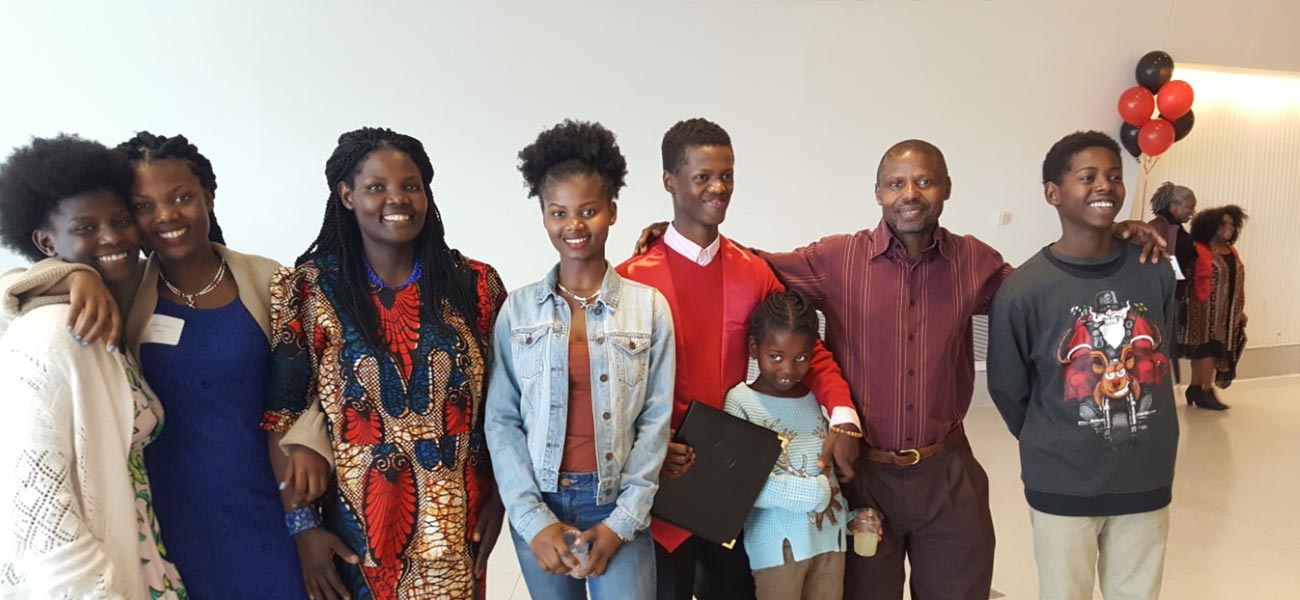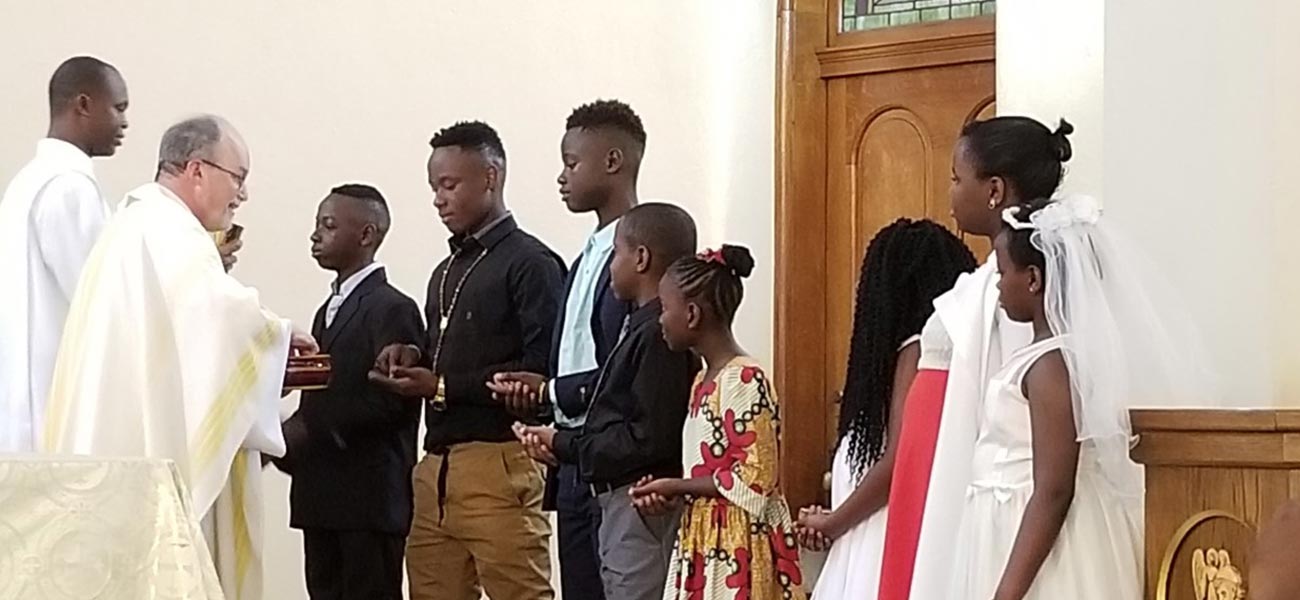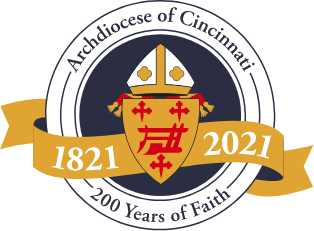
Burundian and Congolese Catholic Communities at St. Leo Parish
During the 1993 Burundian genocide in Burundi, Democratic Republic of the Congo, the Burundians witnessed the slaughtering of their family members and friends. They saw their homes, businesses, lands, schools and churches destroyed. They fled with surviving family members and what little they could carry, seeking safety in another land. It was a dangerous and tiring journey as they tried to evade jungle hazards and the soldiers who pursued them. Many found temporary refuge in the Congo and later settled in refugee camps in Tanzania, where they lived with inconsistent job and educational opportunities and minimal health and pastoral care for more than 20 years.
These are the Burundians who became members of St. Leo Parish after Catholic Charities settled them in Cincinnati in 2008. It was the Burundians’ faith that sustained them, and finding a church was a priority when they arrived. They came with thankful hearts and tattered prayer books — treasures from home they had carried with them.
Though they didn’t understand the language, the Burudians participated at Mass as best as they could. In order to help them, St. Leo Parish made Sunday readings available to the Burundians by copying the readings from a borrowed Kirundi Bible. Some Burundians even became part of the choir and sang hymns in their native language during Communion each Sunday. Since many Burundians had not been baptized or confirmed or received their first Communion, they were able to receive these sacraments at St. Leo Parish. Some couples lacked sacramental marriage. One Sunday, five couples received the sacrament of holy matrimony with a full church joyfully celebrating with them.

Many Burundians had been farmers in their home countries and utilized their skills in a neighborhood community garden. They became teachers, showing different ways of gardening to American parishioners.
Learning English was a priority. They eagerly participated in ESL classes held at church and utilized tutoring classes for their children, many of whom attended Catholic schools. Several of these children are now college graduates, and many families have become citizens and homeowners.
In more recent years, a growing number of Congolese refugee families (also fleeing war and violence in their home country) have joined the parish, bringing with them their unique culture and gifts. In order to help these new arrivals feel more at home, the parish made Mass readings available in Swahili. These families also quickly took part in the English and tutoring programs already in place.
Both Burundian and Congolese parishioners have become lectors and extraordinary ministers of the Eucharist. The pastoral council now includes representatives from the African communities, as well as Central Americans, Anglos and African Americans. They are active in all facets of parish life.
Refugees who have been in the United States longer mentor those just arriving and give staff a heads up on the refugees’ needs and concerns. The entire parish has grown to celebrate its diversity. It is not uncommon for baptism and confirmation sponsors (or even members of a wedding party) to include members from other ethnic groups.
When a seminarian from Kenya was ordained a deacon, the plan was to have a simple punch and cake reception. But the refugee community had a different idea.
“He is African. He needs African food,” they said.
When guests came to the reception, they were treated to African food, as well as cake.
When thanked for providing African food, the refugee community said, “It is our privilege. After all, we are brothers and sisters of Jesus.”
That kind of faith and sense of community has deepened the entire parish’s relationship with God and with each other.
As one family they say: “Praise God! Imanishimwe! Msifu Mungu! ¡Alabado sea el Senor!”

